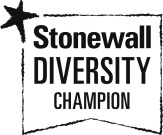Introduction to the REC
Advance HE’s Race Equality Charter (REC) provides a framework to help institutions identify and address the barriers facing Black, Asian and minority ethnic staff and students in Higher Education. Work on REC development started in 2012 following the successful sector uptake of Advance HE’s Athena Swan (gender equality) charter. The initial REC pilot resulted in 21 applications and eight institutions receiving a Bronze award (August 2015). As of July 2024 there were 112 member institutions with 46 holding Bronze and 3 holding Silver awards.
Keele obtained a Bronze award following submission in 2019 and successfully submitted for Silver in July 2024, being the 4th University to receive this level of award.
The REC covers academic staff, professional services staff, student progression and attainment and diversity of the curriculum. REC is an evolving charter. Institutions are expected to start at Bronze level and progress to Silver. The award is at institutional level only but actions have ownership across the University and must be implemented at an appropriate level, including at Faculty, Directorate and School or departmental levels.
The charter is based on five key principles, which were updated in July 2023. Institutions that apply to be part of the Charter commit to adopting these principles within policies, practices, action plans and cultures:
- Racism is an everyday facet of UK society and racial inequalities may manifest themselves in everyday situations, processes, and behaviours. Racial disparities are a critical issue in outcomes for staff and students, recognising that racial inequalities are not necessarily overt, isolated incidents.
- The UK higher education sector will not reach its full potential unless it can benefit from the talents of the whole population and until individuals from all ethnic backgrounds can benefit equally from the opportunities it affords.
- In tackling racial inequalities, it is important that actions are aimed at achieving transformational and long-term institutional culture change, avoiding a deficit model where actions are aimed at changing the individual.
- Staff and students from racially minoritised ethnic backgrounds are not a homogeneous group. People from different ethnic backgrounds have different experiences of, and outcomes from and within, higher education, and that complexity needs to be considered in analysing data, developing solutions, and implementing actions.
- Embracing intersectionality, from analysing data to developing actions, can better support institutions to tackle racism within the higher education sector.
The July 2023 update to the charter framework provided greater flexibility to focus on priority areas identified within self-assessment and important within the applicant's context.





